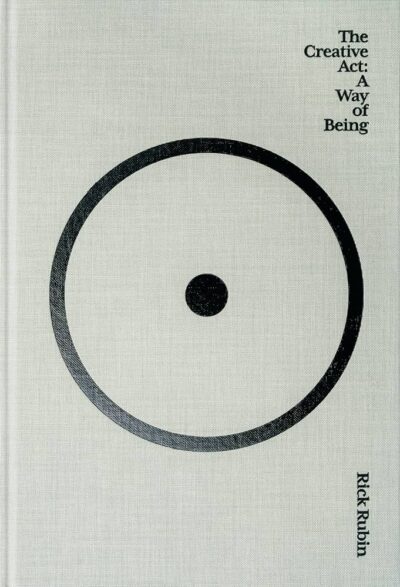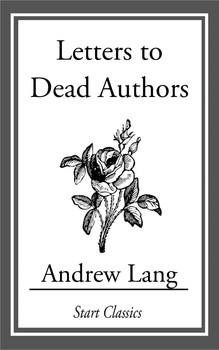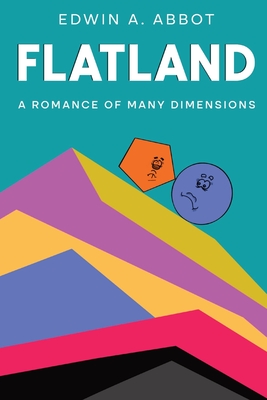182 Results with the "Philosophical" genre
Adventure Fiction (1164)
Biography (435)
Business & Finance (1)
Children's Literature (124)
Comics (6)
Culture (51)
Drama (123)
Dystopian (29)
Fable (86)
Fantasy (1132)
Fantasy (203)
Fiction (1010)
Finance (1)
Gothic Fiction (12)
Historical Fiction (615)
History (122)
Horror (56)
Lifestyle (36)
Literary (404)
Literary Fiction (207)
Memoir (113)
Mystery (422)
Non-fiction (87)
Novel (549)
Paranormal Fiction (96)
Philosophy (45)
Poetry (249)
Political Fiction (14)
Politics (42)
Practical (32)
Psychological (4)
Psychological Thriller (108)
Relationship (6)
Romance Novel (716)
Romantic Melodrama (14)
Satire (91)
Science (46)
Science Fiction (345)
Self-help (68)
Society (65)
Society (2)
Spiritual Growth (1)
story (2)
Thriller (704)
True Crime (56)
view (11)
Women's Fiction (2)
Young Adult (233)
-
 Chapter V invites readers into Henri Bergson’s original vision of inner experience, a philosophy that reshapes how we understand thought, time, and freedom. He departs from the prevailing view of consciousness as a collection of separate parts. Instead, he argues that mental life flows like a melody, where each note influences the one before and after. Bergson sees consciousness as layered and continuous, not mechanical or static. This movement, which he calls “duration,” cannot be sliced into…
Chapter V invites readers into Henri Bergson’s original vision of inner experience, a philosophy that reshapes how we understand thought, time, and freedom. He departs from the prevailing view of consciousness as a collection of separate parts. Instead, he argues that mental life flows like a melody, where each note influences the one before and after. Bergson sees consciousness as layered and continuous, not mechanical or static. This movement, which he calls “duration,” cannot be sliced into…-
57.6 K • Ongoing
-
-
 Chapter 27 - SARDOU at Marly-le-Roy opens with a scenic retreat into the wooded charm of Marly-le-Roy, a village once alive with royal splendor. Though the grandeur of the old palaces has faded, the land still breathes with echoes of regal history. Once favored by Louis XIV, the village now offers quiet reverence instead of the sounds of courtly music, its prestige whispered through the statues and stone remnants scattered about. Among these is the home of Victorien Sardou, an iconic playwright who has…
Chapter 27 - SARDOU at Marly-le-Roy opens with a scenic retreat into the wooded charm of Marly-le-Roy, a village once alive with royal splendor. Though the grandeur of the old palaces has faded, the land still breathes with echoes of regal history. Once favored by Louis XIV, the village now offers quiet reverence instead of the sounds of courtly music, its prestige whispered through the statues and stone remnants scattered about. Among these is the home of Victorien Sardou, an iconic playwright who has…-
151.7 K • Ongoing
-
-
Chapter
The Source of Creativity
 The chapter "The Source of Creativity" explores the vast and limitless reservoir of creative material that surrounds us at all times. Every thought we have, every sensation we experience, and even the fleeting fragments of dreams or forgotten ideas contribute to this boundless source. Creativity, rather than being something we generate in isolation, is described as an external force—one that we tune into through observation, intuition, and memory. This perspective shifts the understanding of artistic…
The chapter "The Source of Creativity" explores the vast and limitless reservoir of creative material that surrounds us at all times. Every thought we have, every sensation we experience, and even the fleeting fragments of dreams or forgotten ideas contribute to this boundless source. Creativity, rather than being something we generate in isolation, is described as an external force—one that we tune into through observation, intuition, and memory. This perspective shifts the understanding of artistic…-
341.4 K • Ongoing
-
-
Chapter
The Abundant Mindset
 Creativity, much like a river, flourishes when it flows freely, replenishing itself through continuous movement and expression. "The Abundant Mindset" challenges the notion that inspiration is a limited resource, arguing instead that the more one creates and shares, the more ideas will arise. This mindset encourages an open approach to creative work, where individuals engage in their craft without fear of running out of inspiration. By contrast, a scarcity mindset suggests that creativity is a finite well,…
Creativity, much like a river, flourishes when it flows freely, replenishing itself through continuous movement and expression. "The Abundant Mindset" challenges the notion that inspiration is a limited resource, arguing instead that the more one creates and shares, the more ideas will arise. This mindset encourages an open approach to creative work, where individuals engage in their craft without fear of running out of inspiration. By contrast, a scarcity mindset suggests that creativity is a finite well,…-
341.4 K • Ongoing
-
-
Chapter
Play
 Creating art is a delicate balance between commitment and play, requiring both deep focus and an openness to spontaneity. It is a process that draws from a vast, cosmic well of creativity while simultaneously embracing the lighthearted joy that comes with uninhibited exploration. Just as a child instinctively picks a color to paint the sky without concern for accuracy, artists thrive when they allow themselves to create freely, without being weighed down by expectations of perfection. The chapter…
Creating art is a delicate balance between commitment and play, requiring both deep focus and an openness to spontaneity. It is a process that draws from a vast, cosmic well of creativity while simultaneously embracing the lighthearted joy that comes with uninhibited exploration. Just as a child instinctively picks a color to paint the sky without concern for accuracy, artists thrive when they allow themselves to create freely, without being weighed down by expectations of perfection. The chapter…-
341.4 K • Ongoing
-
-
Chapter
LETTER–To Jane Austen
 Letter to Jane Austen begins with a quiet yet sincere admiration for a literary voice that once echoed in drawing rooms, now faint amid the louder tones of modern fiction. The author opens by noting how Austen’s art—subtle, moral, and finely tuned—has drifted from favor in an era that hungers for urgent passions, bold causes, and dramatic upheaval. Austen's heroines, though modest in scope and setting, are painted with an intelligence and clarity unmatched in the broader romantic tradition. Their…
Letter to Jane Austen begins with a quiet yet sincere admiration for a literary voice that once echoed in drawing rooms, now faint amid the louder tones of modern fiction. The author opens by noting how Austen’s art—subtle, moral, and finely tuned—has drifted from favor in an era that hungers for urgent passions, bold causes, and dramatic upheaval. Austen's heroines, though modest in scope and setting, are painted with an intelligence and clarity unmatched in the broader romantic tradition. Their…-
82.9 K • Ongoing
-
-
Chapter
Chapter 6 — Modern Architecture
 Chapter 6 - Modern Architecture begins with the imagined awe of a traveler first glimpsing New York’s skyline at twilight—a moment filled with wild allure and grand silhouettes. Yet that same skyline, when viewed in the stark light of day, transforms into a display of disjointed ambition and architectural confusion. Towers rise without rhyme or rhythm, each clamoring for attention, none offering unity. Where cities of the past presented a visual dialogue of shared ideals, this cityscape resembles a…
Chapter 6 - Modern Architecture begins with the imagined awe of a traveler first glimpsing New York’s skyline at twilight—a moment filled with wild allure and grand silhouettes. Yet that same skyline, when viewed in the stark light of day, transforms into a display of disjointed ambition and architectural confusion. Towers rise without rhyme or rhythm, each clamoring for attention, none offering unity. Where cities of the past presented a visual dialogue of shared ideals, this cityscape resembles a…-
151.7 K • Ongoing
-
-
 Section 5 explores the rigid structure that defines a woman’s place in Flatland—a society where mobility, both social and intellectual, is essentially impossible for them. Women are shaped as mere lines, and this geometric limitation marks them as inherently inferior in the eyes of the system. Unlike other shapes that can evolve into higher forms, women remain fixed, both in form and fate. There is no educational path, no social strategy, and no merit-based system that can change their status. As a…
Section 5 explores the rigid structure that defines a woman’s place in Flatland—a society where mobility, both social and intellectual, is essentially impossible for them. Women are shaped as mere lines, and this geometric limitation marks them as inherently inferior in the eyes of the system. Unlike other shapes that can evolve into higher forms, women remain fixed, both in form and fate. There is no educational path, no social strategy, and no merit-based system that can change their status. As a…-
92.9 K • Ongoing
-
-
Chapter
Setting
 The setting in which we immerse ourselves plays a crucial role in shaping our ability to connect with the universe, creative energy, and collective consciousness. Each individual has a unique way of tuning into inspiration, whether through solitude, social engagement, or a balance between the two. Some may find their most profound creative insights while surrounded by nature, where the stillness of a forest, the rhythmic crash of ocean waves, or the serenity of a monastery fosters a deep sense of clarity.…
The setting in which we immerse ourselves plays a crucial role in shaping our ability to connect with the universe, creative energy, and collective consciousness. Each individual has a unique way of tuning into inspiration, whether through solitude, social engagement, or a balance between the two. Some may find their most profound creative insights while surrounded by nature, where the stillness of a forest, the rhythmic crash of ocean waves, or the serenity of a monastery fosters a deep sense of clarity.…-
341.4 K • Ongoing
-
-
Chapter
Tuning Out (Undermining Voices)
 Tuning Out from Undermining Voices examines the shift artists experience as they transition from the solitary nature of their early work to the overwhelming influence of external expectations. In the beginning, creative expression is deeply personal, often evolving in isolation where an artist’s only audience is themselves. This period of artistic incubation allows for uninhibited exploration, with no concern for public reception, financial viability, or critical judgment. However, once the work is…
Tuning Out from Undermining Voices examines the shift artists experience as they transition from the solitary nature of their early work to the overwhelming influence of external expectations. In the beginning, creative expression is deeply personal, often evolving in isolation where an artist’s only audience is themselves. This period of artistic incubation allows for uninhibited exploration, with no concern for public reception, financial viability, or critical judgment. However, once the work is…-
341.4 K • Ongoing
-
- 1 2 … 19 Next
